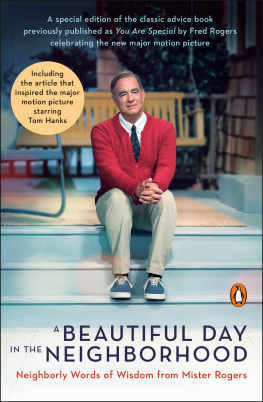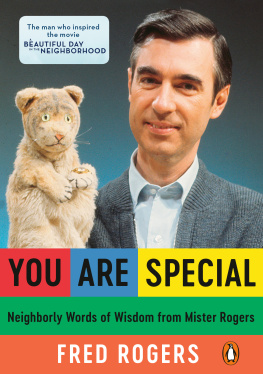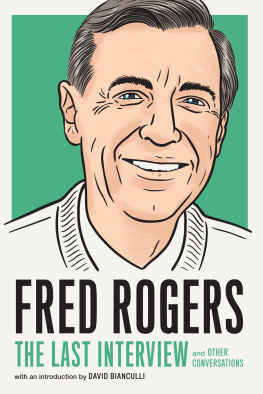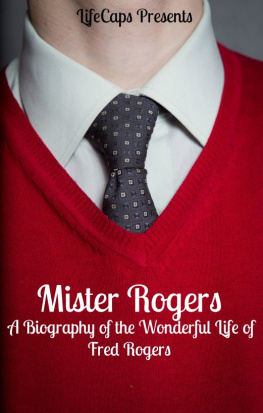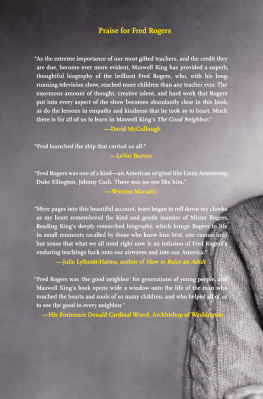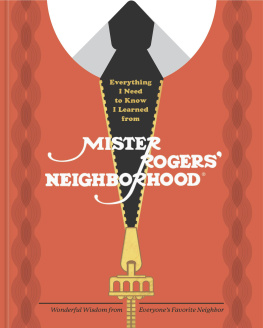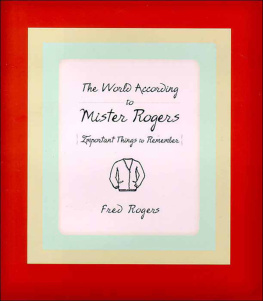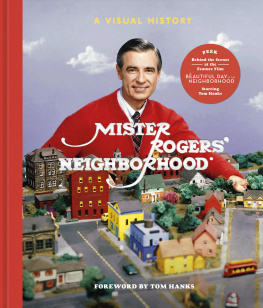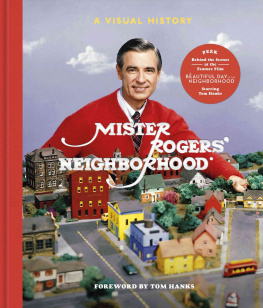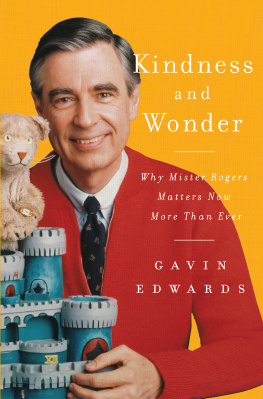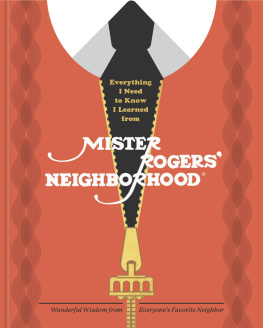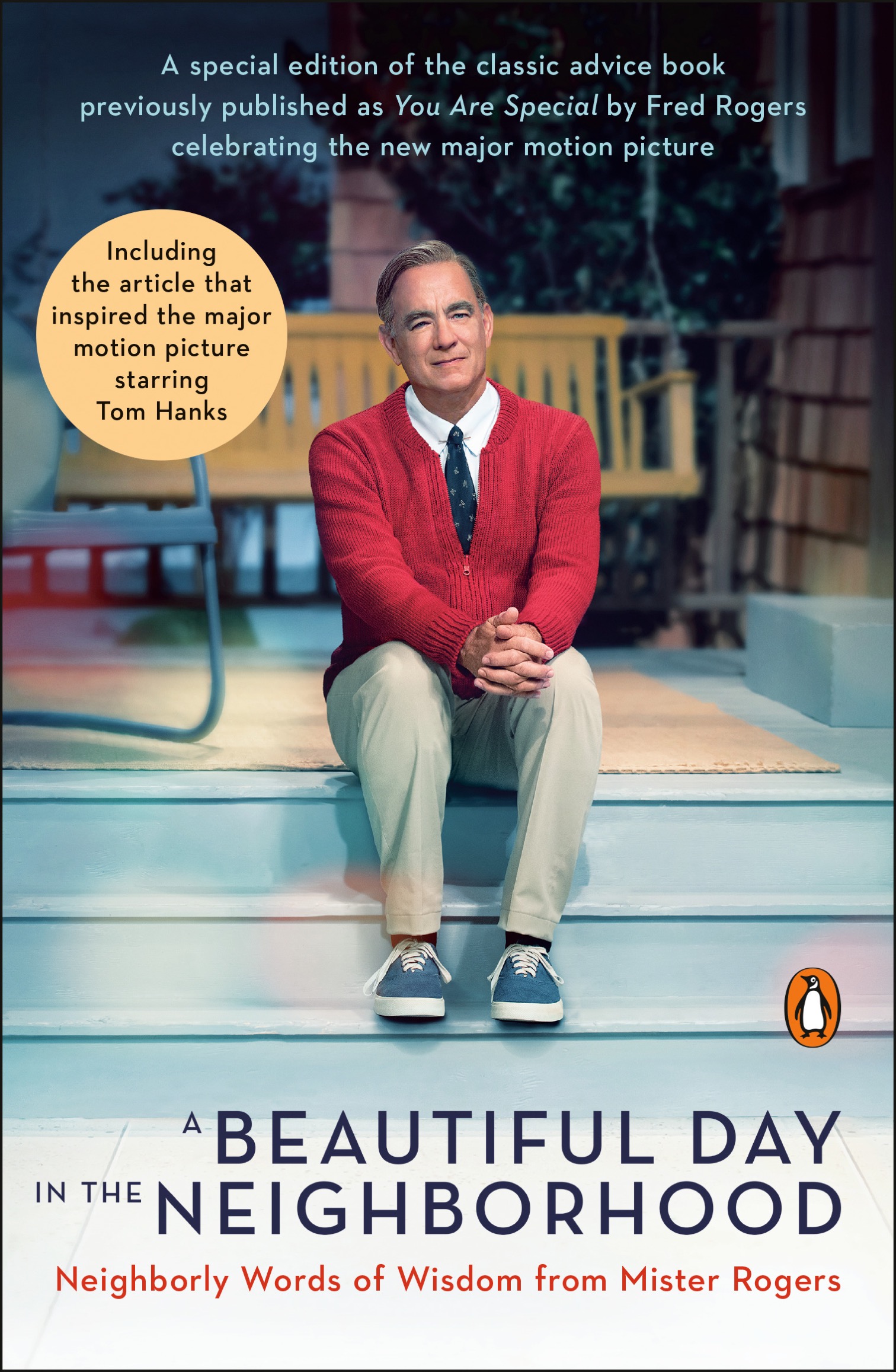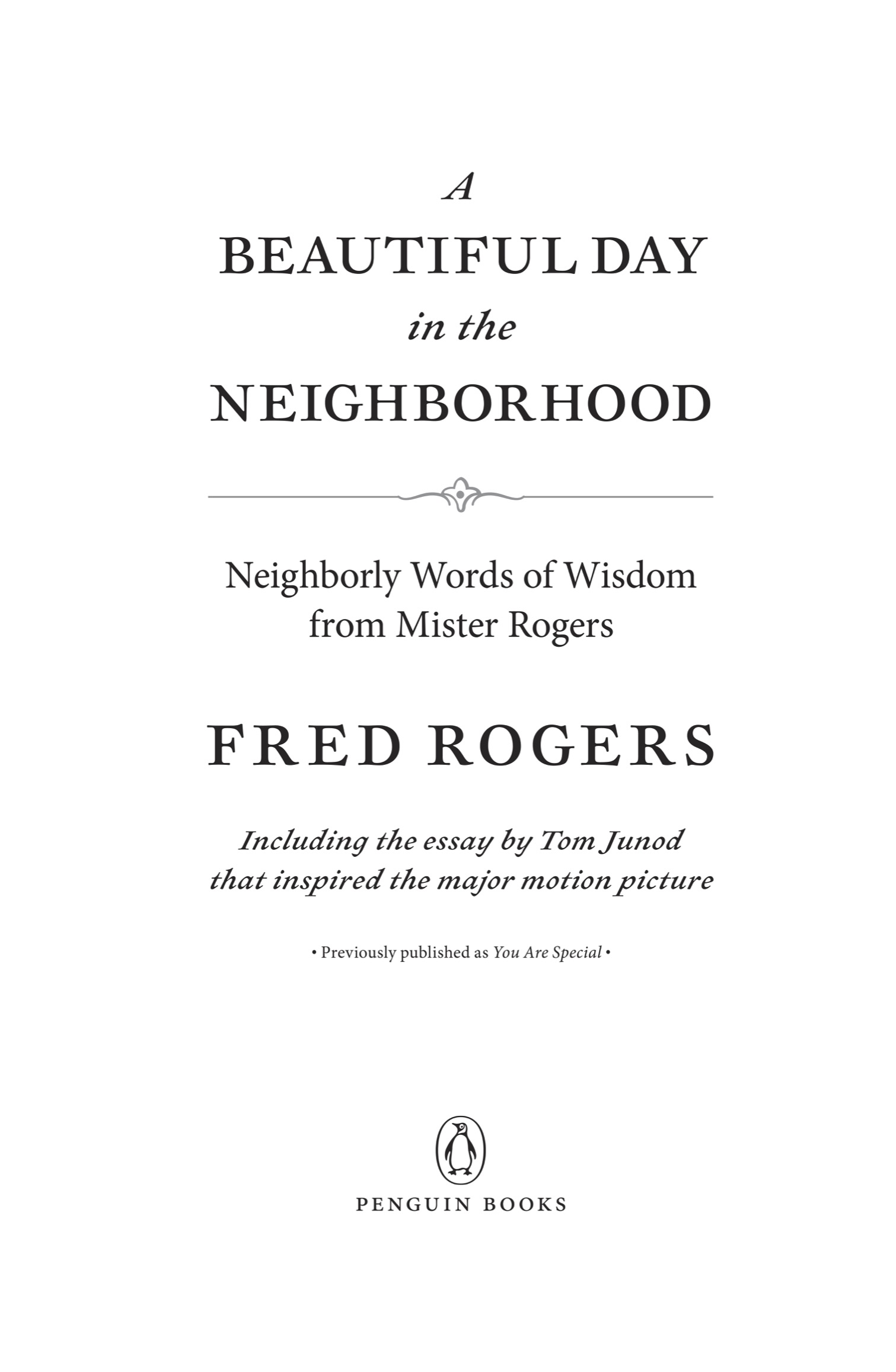PENGUIN BOOKS
A
BEAUTIFUL DAY
in the
NEIGHBORHOOD
Fred Rogers (19282003) was a producer, writer, magician, puppeteer, minister, husband, and father who began working in childrens television in the 1950s and created the PBS program Mister Rogers Neighborhood. He pioneered programming that spoke, with respect, to the concerns of early childhood, not as adults see it but as children feel it. For his work, he received the Presidential Medal of Freedom, a Peabody Award, and numerous other honors. The Television Hall of Fame inducted him in 1999, and the Smithsonian Institution displays one of his sweaters as a treasure of American history. He founded Family Communications, Inc., now Fred Rogers Productions, a not-for-profit company that continues to develop programming, special projects, and materials that help children learn and grow, including Daniel Tigers Neighborhood.
Tom Junod is the recipient of two National Magazine Awards from the American Society of Magazine Editors. He has written for GQ and Esquire, and is a senior writer for ESPN. His 1998 profile of Fred Rogers for Esquire is the basis for the feature film A Beautiful Day in the Neighborhood.
ALSO BY FRED ROGERS
Dear Mister Rogers, Does It Ever Rain in Your Neighborhood?: Letters to Mister Rogers
PENGUIN BOOKS
An imprint of Penguin Random House LLC
penguinrandomhouse.com
First published in the United States of America as You Are Special: Words of Wisdom for All Ages from a Beloved Neighbor by Viking, an imprint of Penguin Publishing Group, a division of Penguin Random House LLC, 1994
Published in Penguin Books 1995
This edition entitled A Beautiful Day in the Neighborhood published in Penguin Books 2019
Copyright 1994 by Family Communications, Inc.
Can You Say... Hero? copyright 1998 by Tom Junod
Penguin supports copyright. Copyright fuels creativity, encourages diverse voices, promotes free speech, and creates a vibrant culture. Thank you for buying an authorized edition of this book and for complying with copyright laws by not reproducing, scanning, or distributing any part of it in any form without permission. You are supporting writers and allowing Penguin to continue to publish books for every reader.
Portions of this work first appeared in Fred Rogerss books, How Families Grow, Mister Rogers Playbook, and Mister Rogers Talks with Parents, and his column Insights into Childhood (King Features Syndicate).
Can You Say... Hero? by Tom Junod first appeared in the November 1998 issue of Esquire.
The song lyrics in this volume are reprinted from the following compositions: I Like to Be Told, 1970, Fred M. Rogers; I Need You, 1970, Fred M. Rogers; Im Taking Care of You, 1968, Fred M. Rogers; Its the People You Like the Most, 1972, Fred M. Rogers; Its You I Like, 1960, Fred M. Rogers; Please Dont Think Its Funny, 1968, Fred M. Rogers; Pretending, 1971, Fred M. Rogers; Sometimes People Are Good, 1967, Fred M. Rogers; The Truth Will Make Me Free, 1970, Fred M. Rogers; Youre Growing, 1967, Fred M. Rogers; Youve Got to Do It, 1969, Fred M. Rogers.
Grateful acknowledgment is made for permission to reprint an excerpt from Whatever Happened to Old Fashioned Love by Lewis Anderson. 1981 Careers- BMG Music Publishing, Inc. (BMI). All rights reserved. Used by permission.
LIBRARY OF CONGRESS CATALOGING-IN-PUBLICATION DATA
Names: Rogers, Fred, author. | Junod, Tom, author.
Title: A beautiful day in the neighborhood : neighborly words of wisdom from Mister Rogers / Fred Rogers ; including the essay by Tom Junod that inspired the major motion picture.
Other titles: You are special
Description: New York : Penguin Books, 2019. | Originally published: New York, N.Y.: Viking, 1994, under title, You are special.
Identifiers: LCCN 2019027644 (print) | LCCN 2019027645 (ebook) | ISBN 9780143135388 (paperback) | ISBN 9780525507055 (ebook)
Subjects: LCSH: Self-esteem. | Child rearing.
Classification: LCC BF697.5.S46 R64 2019 (print) | LCC BF697.5.S46 (ebook) | DDC 158.1dc23 LC record available at https://lccn.loc.gov/2019027644
LC ebook record available at https://lccn.loc.gov/2019027645
Movie picture artwork 2019 TriStar Pictures, Inc. All rights reserved.
Version_1
Dedicated to all of the childrenof any age who have found our Neighborhood and have been willing to spend time growing right along with me.
Contents
Can You Say... Hero?
Tom Junod
In 1998, journalist Tom Junod received an assignment to profile Fred Rogers for Esquire. For reasons both personal and professional, Junod had lost confidence as a writer. He didnt anticipate finding guidance and reassurance from such an unlikely source, a beloved childrens television host. In crafting the piece, Junod followed Rogers around New York City, visiting his apartment and studio to observe his daily routines and interactions with adoring fans. He also accompanied Rogers to the home where he grew up in Latrobe, Pennsylvania, for a window into the childhood of a man renowned for his understanding of children. The resulting piece, which beautifully demonstrated why Fred Rogers means so much to so many people, was widely acclaimed on publication and became known as a classic of magazine reporting.
When screenwriters Noah Harpster and Micah Fitzerman-Blue read Junods piece, they were inspired to write a story based on the true-life friendship between the two men. Directed by Marielle Heller and starring two-time Oscar-winner Tom Hanks as Fred Rogers and Matthew Rhys as Lloyd Vogel, a character based on Junod, the film is called A Beautiful Day in the Neighborhood , released in 2019 by TriStar Pictures. This friendship between these two men was an irresistible opportunity to revisit the philosophy of Fred Rogers through a grown-up lens, said Marielle Heller. At a time when the world feels divided, Freds message of kindness is even more important. His radical kindness, one that does not discriminate, resonated with all of us and we hope it resonates with audiences. We all feel like weve been forever changed by working on this movie and we thank Fred for that gift.
O NCE UPON A TIME , a little boy loved a stuffed animal whose name was Old Rabbit. It was so old, in fact, that it was really an unstuffed animal; so old that even back then, with the little boys brain still nice and fresh, he had no memory of it as Young Rabbit, or even Rabbit; so old that Old Rabbit was barely a rabbit at all but rather a greasy hunk of skin without eyes and ears, with a single red stitch where its tongue used to be. The little boy didnt know why he loved Old Rabbit; he just did, and the night he threw it out the car window was the night he learned how to pray. He would grow up to become a great prayer, this little boy, but only intermittently, only fitfully, praying only when fear and desperation drove him to it, and the night he threw Old Rabbit into the darkness was the night that set the pattern, the night that taught him how. He prayed for Old Rabbits safe return, and when, hours later, his mother and father came home with the filthy, precious strip of rabbity roadkill, he learned not only that prayers are sometimes answered but also the kind of severe effort they entail, the kind of endless frantic summoning. And so when he threw Old Rabbit out the car window the

